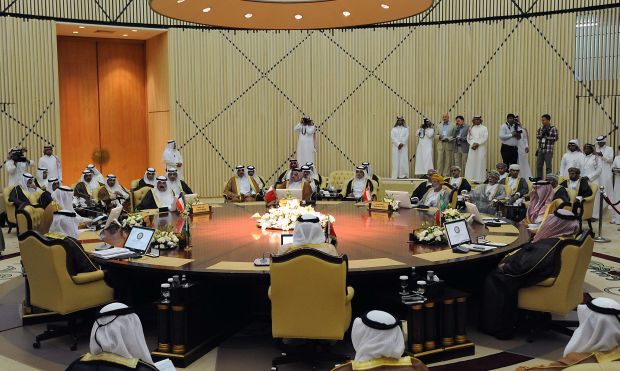The Gulf Cooperation Council’s upcoming Doha Summit will go ahead at its scheduled time and place. It has not been postponed or relocated to another country. It is taking place after an important part of the difference of opinion that split Qatar from its sister states of Saudi Arabia, the UAE and Bahrain have been resolved; the other part of this is pending resolution, waiting for the GCC summit to announce that the door to these differences have now been closed. It is true that ambassadors have returned, and that intentions have improved, and that the gaps between these countries have narrowed. It is also true that we have an agreement which all sides are adhering to, and which was signed under the auspices of the Custodian of the Two Holy Mosques and his government. However, we must also not forget that the Riyadh Agreement, which was signed on November 16, grants a one month time frame for all parties to reach an agreement on the issues that remain unresolved.
It is the fate of the Gulf to be tense and full of dangers. When the Iran-Iraq war broke out, the people of the Gulf prayed not to see a return to those days. The war ended and Saddam Hussein invaded Kuwait, and the people of the Gulf prayed once again for this sorrowful state of affairs— which they viewed as the most dangerous in their history—to end. Then Saddam Hussein and his forces left Kuwait. The crises continued to escalate, while the people of the Gulf continued with their prayers. The US invaded Iraq and handed it over to Iran. Tehran’s expansionist policies succeeded in Lebanon, Syria and Yemen. The fire of the “Arab Spring” broke out and some of the flames reached Bahrain and Oman. Then we saw the emergence of the Islamic State of Iraq and Syria (ISIS), which took control of half of Iraq and one third of Syria. Could anything worse happen or is that all? Each and every year the Gulf finds itself facing even graver and graver threats. The poet was right when he wrote: “You may long tomorrow for what made you cry today!”
The people of the Gulf are facing five major challenges during this unprecedented period in their history. These threats will continue to grow so long as differences beset the GCC, some countries unilaterally take positions that could harm their sisterly Gulf states, and there is no unified vision on vital issues.
The first challenge is the lack of stability in Egypt and continuing attempts to turn the clock back there, particularly in light of the clear threat represented by the Muslim Brotherhood. This organization continues to refuse to recognize the legitimacy of the Egyptian state and is working to topple it.
Secondly, there is the challenge of ISIS and the danger represented by its deviant ideology, not just its military strength. This ideology, unfortunately, has found some acceptance within elements of some Gulf societies.
The third challenge is Iran, which is working to expand its regional influence and infiltrate the Arab world, in addition to its explicit strategy of saying that it is the guardian of the Shi’ite communities in the Gulf, not their own governments or states.
As for the fourth challenge, this is the threat of the Muslim Brotherhood extending its presence in the Gulf region. Despite all the legal steps that have been taken to stop this expansion, the implementation of these laws, until now, remains lax.
As for the fifth and final challenge, this is the Gulf citizens who make excuses for not engaging with their parliaments or on local issues when it is clear that political and international issues are taking priority. However, these citizens are ignoring an important part of the legitimate rights of Gulf citizens; this could change the general mood in the Gulf and create positive associations for these Gulf citizens with their governments.
You cannot just ignore the unfolding events in the Gulf, playing for time and waiting for a solution to make itself known. It is impossible for Gulf states to be strong and stable while suffering from deep internal wounds. If the people of the Gulf truly want to rescue the GCC summit, then merely attending is not enough. They must resolve their differences irrevocably through a clear, explicit and transparent commitment to their people. The greatest threat is that some of these differences to be resolved only for others to remain. Can an open wound be healed?
